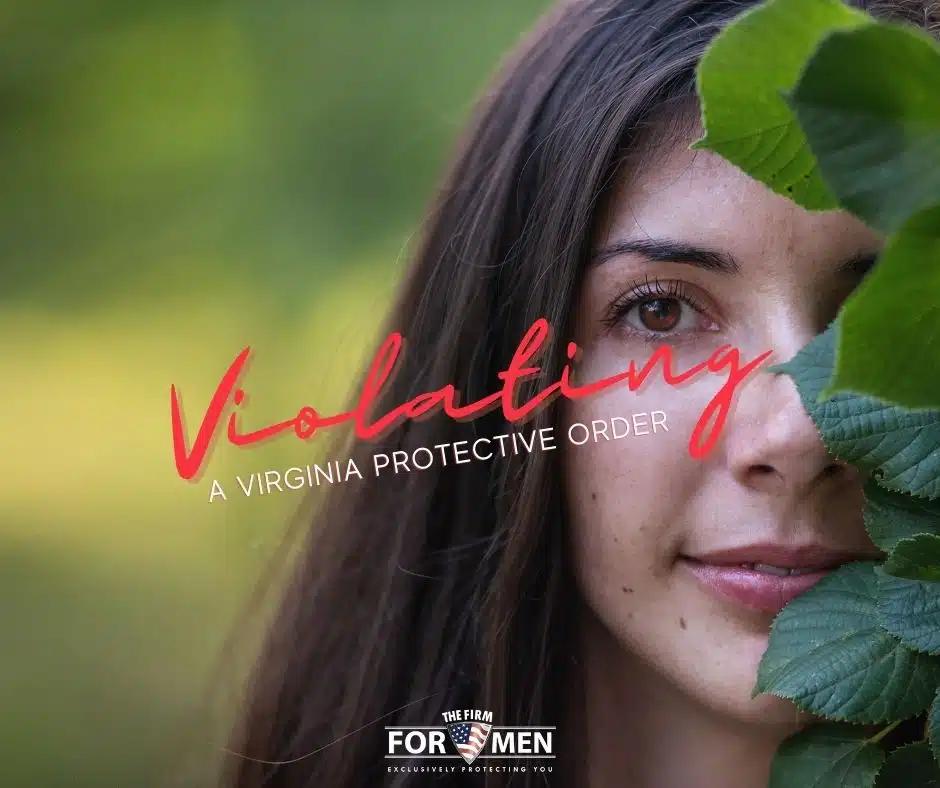What can you get done in 60 days? In Virginia, you have to get a state driver’s license within 60 days of moving into the Commonwealth. In Great Britain, you can have two Prime Ministers in less than 60 days. You can also while away 60 days in jail in Virginia for violating a protective order—say, for domestic violence.
Jump to a Section
- Domestic Violence is No Joke
- Consequences of a Second Offense for Violating a Protective Order
- Repeat Violations of a Protective Order in Virginia
- Reporting a Protective Order Violation in Virginia
- Legal Options
Domestic Violence is No Joke
If you are a longtime reader of these informational pieces, you may notice a certain … sassiness … to some of our work. But unfortunately, domestic violence is not a big draw at open mic night, so we will dispense with the humor and focus on the seriousness of the topic. The Virginia Department of Health tells us:
- Over one-third of homicides occurring in Virginia relate to domestic violence
- Both men and women are victims of domestic violence
- Women are more likely to be killed at the hands of an intimate partner
- Men are more likely to be killed as a bystander or in an altercation over an intimate partner
- Over half (62 percent) of family and intimate partner (FIP) homicides involve a firearm
- Approximately 40 percent of all homicides involving intimate partners occur while a relationship is ending or shortly after it has ended
- Of all homicides connected to intimate partners, over one-fifth are homicide-suicide events
Domestic abuse involves any of five aspects of interactions with intimate partners or family members, according to the Virginia Attorney General’s office:
- Physical violence
- Emotional abuse
- Sexual assault
- Economic control
- Neglect
So, while a spouse or ex-spouse can try to claim innocence by saying, “I never hit him,” other forms of violence can be grounds for a petition for protective order.
Consequences of a Second Offense for Violating a Protective Order
In general, judges in the Commonwealth have a great deal of discretion in running their courtrooms, meting out punishments, and stipulating fines. Not so with violations of protective orders. The law, § 18.2-60.4 in the Code of Virginia, is rare for one aspect:
The punishment for any person convicted of a second offense of violating a protective order, other than a protective order issued pursuant to subsection C of § 19.2-152.10, when the offense is committed within five years of the prior conviction and when either the instant or prior offense was based on an act or threat of violence, shall include a mandatory minimum term of confinement of 60 days. [emphasis added]
No do-overs. No take-backs. The judge has no discretion in this. If you are found guilty of walking through a restraining order twice in five years, you are spending sixty days in the not-so-loving embrace of Virginia’s penal system. Even if the judge is your best friend.
Repeat Violations of a Protective Order in Virginia
The 60-day consequence of two violations of protective orders within five years is not the worst part of § 18.2-60.4. It also is not the best possible outcome, since a single violation and conviction “only” results in being guilty of a Class 1 Misdemeanor, which in Virginia (under § 18.2-11) carries a pair of bruising punishments:
For Class 1 misdemeanors, confinement in jail for not more than twelve months and a fine of not more than $2,500, either or both.
The first two consequences of a violation of a protective order—six months, 12 months and a fine—can even be viewed as going easy on any knucklehead who loses self-control.
Suppose you violate a protective order for a third time over a span of twenty years—yes, we said 20 years. Then, if convicted, you automatically get six months. Not 60 days; six months (180 days) And your third strike is a felony, not a misdemeanor. And just to put a little cherry on that half-year sentence, the legislators added this to the law:
The mandatory minimum terms of confinement prescribed for violations of this section shall be served consecutively with any other sentence.
So you (or your spouse, ex-spouse, intimate partner) do your time for some other nitwit move, and then serve the additional six months.
Reporting a Protective Order Violation in Virginia
The law is tough—as it should be, considering how serious domestic violence is in Virginia—but the law and law officers have no ESP, no omniscience. You have to tell law enforcement if a spouse, ex-spouse, or domestic partner violates a protective order.
Law enforcement will do the heavy lifting based on your report, usually arresting the person violating the protective order.
After you calm down and make sure your children are safe, make records of everything that happened (video, typed notes, handwritten lists, whatever you need to memorialize the traumatic events). Expect to turn these over to your family law attorney.
Legal Options
Unfortunately, too many Virginians rob themselves of legal options for dealing with domestic violence and violations of protective orders. They have second thoughts after an arrest. They stop short of pressing charges. That is part of the reason for the mandatory sentence.
We understand the dilemma but keep all your options open for as long as possible. Preserve your notes, safeguard your photographic and video records, and upload abusive text messages to the cloud.
After you have had time to process your emotions, contact your family law attorney and discuss your options. Never be the one to stop the legal consequences of domestic violence.
At The Firm For Men we work relentlessly to protect your rights, safeguard your assets, and secure your peace of mind. Contact us today or telephone our Virginia Beach offices at (757) 383-9184 to speak with one of our Virginia family law attorneys.

